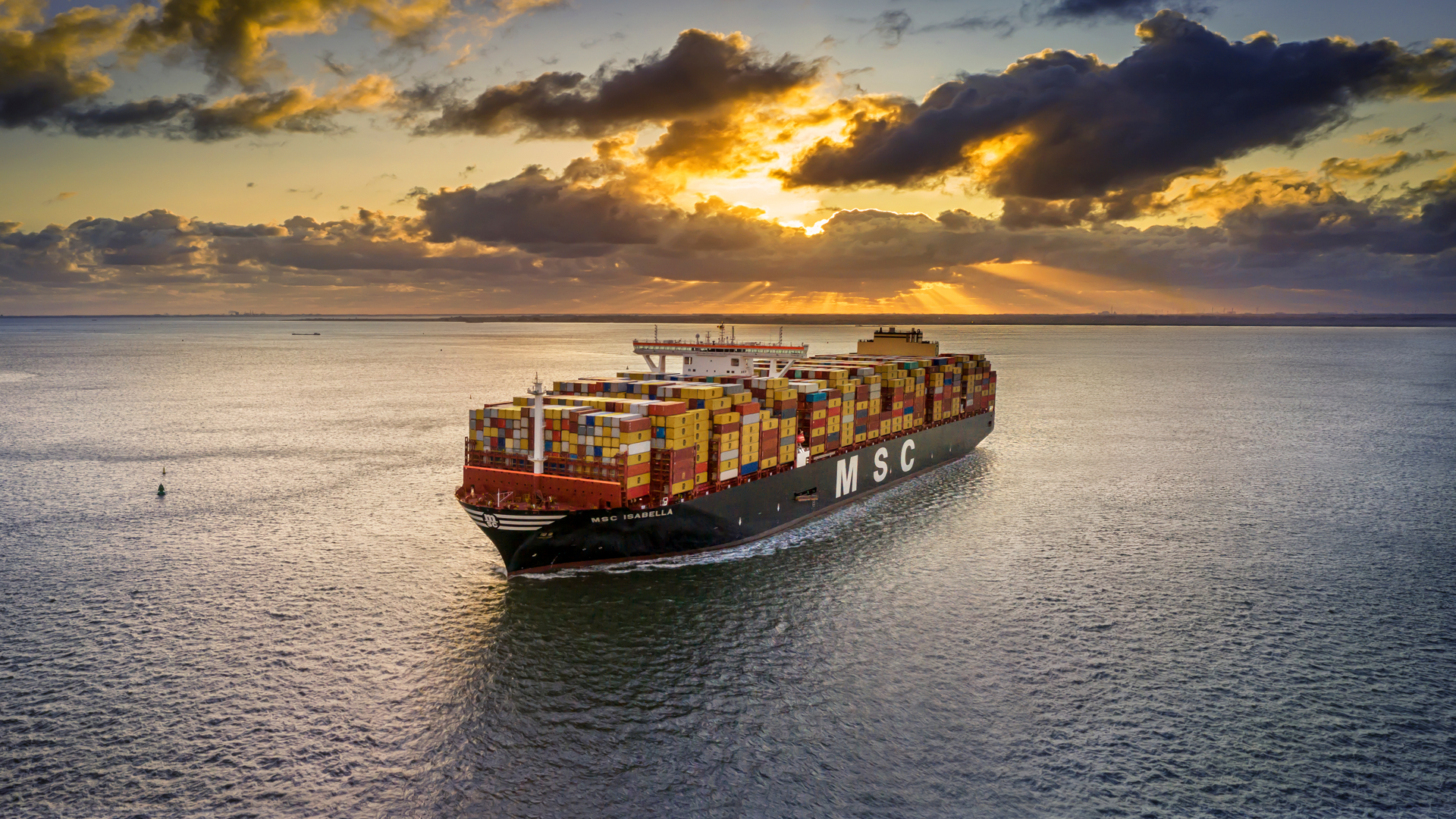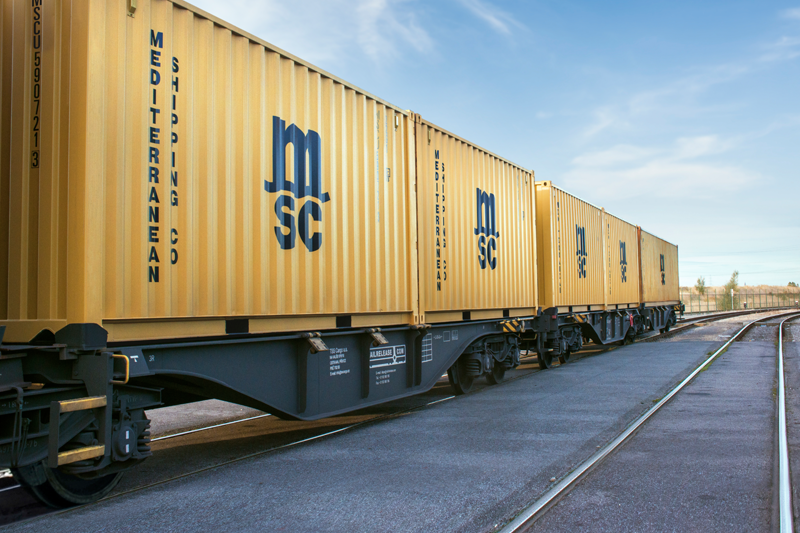Our pilot projects underline that the port is forging…
Senator Michael Westhagemann, Hamburg’s Minister of Economics and Innovations, outlines how the Port of Hamburg aims to become climate-neutral.

As a leading company whose business both impacts and is impacted by the climate, MSC has a key role to play in decarbonising logistics and operates one of the world’s most modern, technologically advanced fleets. MSC has improved the energy efficiency of ocean shipping in recent decades and reduced CO2 emissions per container carried. The company continues to deploy solutions to keep on enhancing fleet efficiency, including energy-saving retrofits, air lubrication technology and advanced data-driven systems. In addition, MSC is engaging in collaborative initiatives as well as investing in research, trials and pilots that are often conducted in partnership with others to support the production and scaling of lowand zero-carbon fuels and technologies.
One of the recently adopted elements of MSC’s energy mix has been blended biofuel, which is currently acting as a transitional option while we wait for even lower-carbon fuels to become available at scale. Through MSC Biofuel Solution, the company offers customers the opportunity to decarbonise their supply chains and achieve their climate targets, delivering CO2 savings by replacing conventional fossil-based fuel with responsibly-sourced, second-generation biofuel derived from sources such as used cooking oil. MSC Germany customers can choose the MSC Biofuel Solution regardless of the cargo’s ports of origin or destination and will receive an MSC-issued Retire ment Certificate that can be used for reporting on the carbon footprint of their supply chain.
MSC has also prepared a portion of its fleet to be capable of dual fuel (liquefied natural gas – LNG) operations. As a low-carbon fuel available today, LNG offers opportunities to transition to sustainable energy sources, and MSC is working with partners to develop future supply chains for bio- and synthetic LNG.
MSC also considers sustainability when developing hinterland transport networks. In planning individual inland solutions for customers MSC Germany’s intermodal experts can tap into a large national network of around 70 commercial rail and inland waterway connections, plus 11 block-train services, linking inland terminals with German seaports in Bremerhaven and Hamburg, as well as Rotterdam and Antwerp and Trieste on the Adriatic. The company is cooperating with certified partners in the intermodal field, for instance with train operating companies that fuel their electric locomotives with CO2-neutral power.
It is not only innovative new technology that is making worldwide logistics chains more sustainable. MSC Germany has long practiced flexible and efficient process control, coordinating with its partners in North Range ports and terminals to precisely match voyage speed to berth availability. Apart from avoidance of lay times, it has been adding benefits. If ships operate at half speed, this approach reduces fuel consumption and emissions, a win-win for customers and the environment. MSC builds and maintains strong relationships with public and private stakeholders, industry associations, governments, non-governmental organisations and other relevant business partners in order to help ensure that climate change action achieves comprehensive momentum.
“For us at MSC Germany, collaborating with our stakeholders in search of solutions to address the global challenges of today is of immense importance. Employing innovative technologies and alternative energy supplies requires collective action and proactive partnerships. Together we can make a substantial contribution towards reducing CO2 emissions in global supply chains.” stresses Nils Kahn, Managing Director of MSC Germany
At the UN Ocean Conference at the end of June 2022, MSC Mediterranean Shipping Company signed the UN Global Compact Sustainable Ocean Principles. These are based on the ten principles of the UN Global Compact on human rights, labour norms, environmental protection and anti-corruption. In utilizing the seas for transport, the company undertakes to act sustainably and to preserve the health of the oceans.
For many years, MSC has committed itself worldwide to the protection of the oceans and their inhabitants. For instance, it is the first significant shipping line to have moved its service route along the West coast of Greece at the beginning of the year to avoid ship collisions with sperm whales which, with a population of no more than 200-300 in the Eastern Mediterranean, are categorised as seriously endangered.
